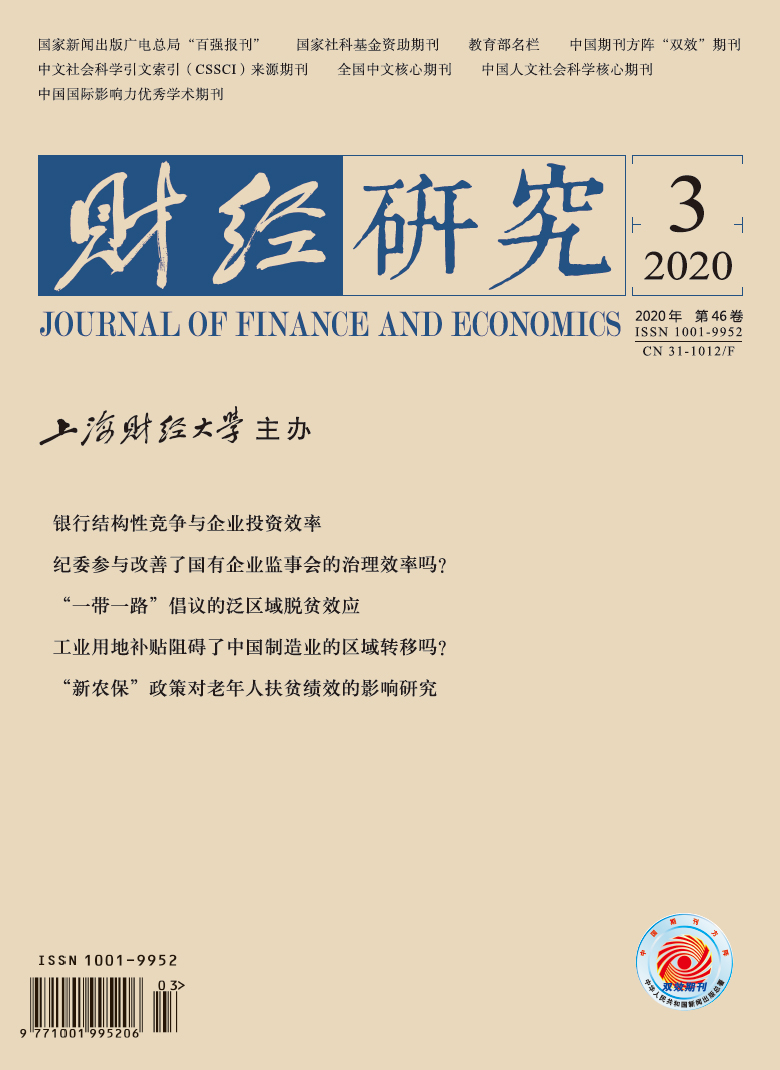党组织参与公司治理,是我国公司治理结构中的一个重要特征。文章利用我国A股非金融类上市公司2009−2016年的数据,考察了党组织通过“双向进入、交叉任职”参与治理对公司避税行为的影响。研究发现,“双向进入”对税收激进度几乎没有显著影响,而“交叉任职”公司的税收激进度显著更低。进一步研究发现,“交叉任职”对避税活动的抑制作用主要存在于税收激进度较高、相关风险较高的情况下,而“交叉任职”在税收激进度较低的情况下并不会显著抑制企业正常的避税行为;在国有企业和非国有企业中,“交叉任职”对税收激进度的影响在统计上并没有显著差异;“全面从严治党”前后,“交叉任职”的作用也没有显著差异。文章从企业避税行为的角度提供了党组织参与治理经济后果的经验证据。
党组织参与治理对上市公司避税行为的影响
摘要
参考文献
1 蔡宏标,饶品贵. 机构投资者、税收征管与企业避税[J]. 会计研究,2015,(10):59−65. DOI:10.3969/j.issn.1003-2886.2015.10.008
5 李成,吴育辉,胡文骏. 董事会内部联结、税收规避与企业价值[J]. 会计研究,2016,(7):50−57. DOI:10.3969/j.issn.1003-2886.2016.07.007
11 吴联生. 国有股权、税收优惠与公司税负[J]. 经济研究,2009,(10):109−120. DOI:10.3969/j.issn.1005-913X.2009.10.049
12 熊婷,程博,王菁. 公司政治治理能抑制大股东掏空行为吗[J]. 贵州财经大学学报,2015,(5):82−94. DOI:10.3969/j.issn.1003-6636.2015.05.008
15 Badertscher B A,Phillips J D,Pincus M,et al. Earnings management strategies and the trade-off between tax benefits and detection risk:To conform or not to conform?[J]. The Accounting Review,2009,84(1): 63−97. DOI:10.2308/accr.2009.84.1.63
16 Badertscher B A,Katz S P,Rego S O. The separation of ownership and control and corporate tax avoidance[J]. Journal of Accounting and Economics,2013,56(2-3): 228−250. DOI:10.1016/j.jacceco.2013.08.005
17 Blaylock B S. Is tax avoidance associated with economically significant rent extraction among U.S. firms?[J]. Contemporary Accounting Research,2016,33(3): 1013−1043. DOI:10.1111/1911-3846.12174
19 Chan K H,Mo P L L,Tang T Y. Tax avoidance and tunneling:Empirical analysis from an agency perspective[J]. Journal of International Accounting Research,2016,15(3): 49−66. DOI:10.2308/jiar-51345
20 Chang E C,Wong S M L. Political control and performance in China’s listed firms[J]. Journal of Comparative Economics,2004,32(4): 617−636. DOI:10.1016/j.jce.2004.08.001
21 Desai M A,Dharmapala D. Corporate tax avoidance and high-powered incentives[J]. Journal of Financial Economics,2006,79(1): 145−179. DOI:10.1016/j.jfineco.2005.02.002
22 Desai M A,Dharmapala D. Corporate tax avoidance and firm value[J]. The Review of Economics and Statistics,2009,91(3): 537−546. DOI:10.1162/rest.91.3.537
23 Dyreng S D,Hoopes J L,Wilde J H. Public pressure and corporate tax behavior[J]. Journal of Accounting Research,2016,54(1): 147−186. DOI:10.1111/1475-679X.12101
24 Hoi C K,Wu Q,Zhang H. Is Corporate Social Responsibility(CSR)associated with tax avoidance? Evidence from irresponsible CSR activities[J]. The Accounting Review,2013,88(6): 2025−2059. DOI:10.2308/accr-50544
25 Khurana I K,Moser W J. Institutional shareholders’ investment horizons and tax avoidance[J]. Journal of the American Taxation Association,2013,35(1): 111−134. DOI:10.2308/atax-50315
26 Lanis R,Richardson G. The effect of board of director composition on corporate tax aggressiveness[J]. Journal of Accounting and Public Policy,2011,30(1): 50−70. DOI:10.1016/j.jaccpubpol.2010.09.003
27 Li H B,Meng L S,Wang Q,et al. Political connections,financing and firm performance:Evidence from Chinese private firms[J]. Journal of Development Economics,2008,87(2): 283−299. DOI:10.1016/j.jdeveco.2007.03.001
28 Qian Y Y. Enterprise reform in China:Agency problems and political control[J]. Economics of Transition,1996,4(2): 427−447. DOI:10.1111/j.1468-0351.1996.tb00181.x
引用本文
李明辉, 刘笑霞, 程海艳. 党组织参与治理对上市公司避税行为的影响[J]. 财经研究, 2020, 46(3): 49-64.
导出参考文献,格式为:





 6308
6308  5640
5640

